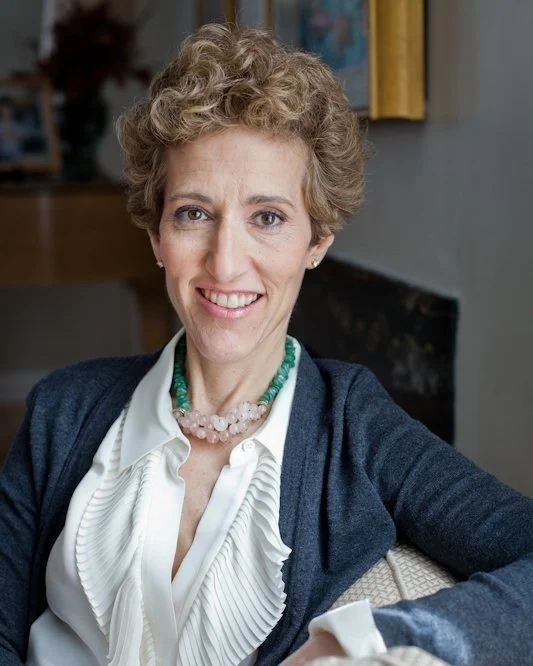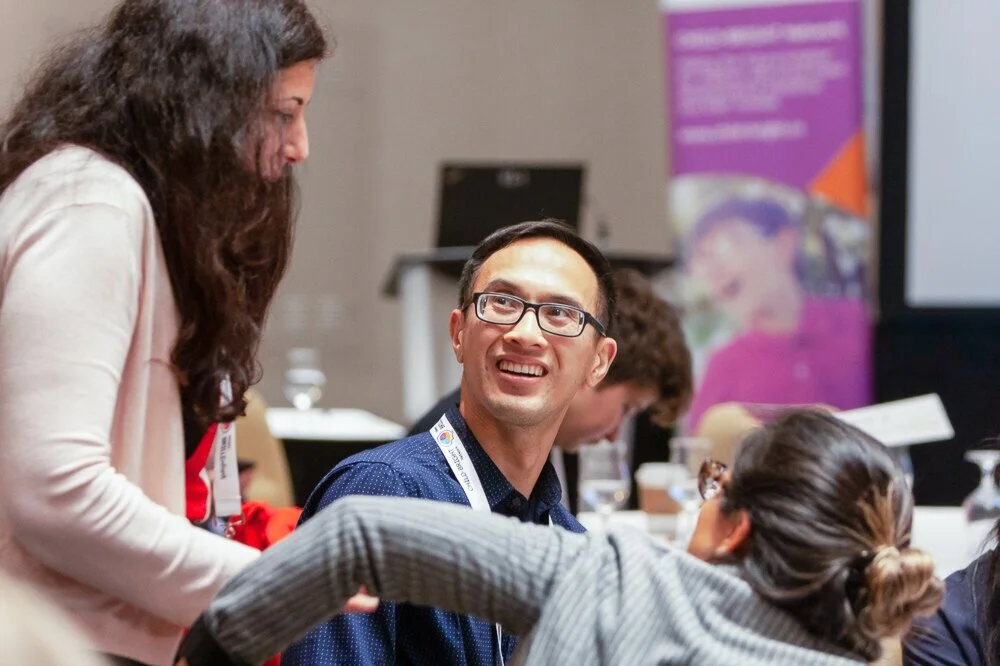The Knowledge Mobilization (KM) Program, led by Keiko Shikako, Stephanie Glegg, and Connie Putterman (parent lead), is composed of individuals who collectively have experience in a number of fields (including health care, public health, psychology, statistics, process/quality improvement, and social work) as well as partners with lived and living experience (PWLEs) and other community members. Each team member has a key role in making sure that our collaborators are provided with expert support at each project step.
From 2016 to 2022, we worked to identify strategies that result in the meaningful engagement of individuals in research activities. As part of CHILD-BRIGHT’s Phase 2 funding (read more about this here), we will influence practice and policy by building an infrastructure that will direct knowledge to targeted users (individuals with brain-based developmental disabilities and their families, health care providers, health care decision-makers, policymakers) using tailored, evidence-informed, user-friendly strategies. We will also carefully evaluate impact.
Our goal
The goal of the KM Program is to facilitate the movement of network-driven evidence for rapid uptake.
Meet our program co-leads
Connie Putterman
CHILD-BRIGHT Knowledge Mobilization Program Co-Lead
Parent and Professional Advocate and Mentor, Instructor and Coordinator for family partnership, engagement and inclusion in autism, neurodevelopmental and mental health research,
Family Engagement in Research Coordinator, Centre for Addiction and Mental Health (CAMH)
Instructor, Co-Developer, Mentor, Consultant, Family Engagement in Research (FER) Course/Program, McMaster University/CanChild/Kids Brain Health Network
Keiko Shikako
CHILD-BRIGHT Principal Investigator & Knowledge Mobilization Program Co-Lead
Canada Research Chair in Childhood Disabilities: Participation and Knowledge Translation
Associate Professor, McGill University | School of Physical and Occupational Therapy
Stephanie Glegg
CHILD-BRIGHT Knowledge Mobilization Program Co-Lead
Investigator, BC Children's Hospital Research Institute
& Assistant Professor, Department of Occupational Science & Occupational Therapy
The University of British Columbia
Meet our committee members
The committee includes partners with KM expertise from four key knowledge user groups: PWLEs, health care and other service providers, decision-makers, and community organizations.
Meet our hub members
The members of our three KM Program hubs (Family hub, Clinician hub, and Policy hub) are comprised of PWLEs, clinicians, and researchers.
Our initiatives
Develop our three KM hubs
The KM Program includes three hubs: a Family hub, a Clinician hub, and a Policy hub. Their overarching goals are (1) to work collaboratively with the network’s research project teams to support their KM activities, and (2) to establish, strengthen, and sustain connections between the CHILD-BRIGHT Network and external knowledge users. Together, these hubs aim to facilitate knowledge exchange between policy makers, researchers, families of children with disabilities, and the community.
Conduct KM research
We use our unique position in a pan-Canadian, multi-project, patient-oriented research network to expand on the science of KM through research projects. Our research project goal is to advance the science of patient-oriented KM through the application of evidence-based KM strategies, and their systematic evaluation.
Engage with youth with disabilities and their families, community members, policymakers, and researchers
We partner with various community members. They participate in our KM committee, research projects (as part of the research team), and knowledge mobilization activities. Our members also represent the network at various meetings to promote the interest of CHILD-BRIGHT’s population, for example, at this event celebrating the 15th anniversary of the United Nations Convention on the Rights of Persons with Disabilities. View the event agenda here.
Support our work with CHILD-BRIGHT research projects and community with their KM needs
We provide our research projects and community with KM expertise and a variety of activities and resources that support knowledge development and exchange. These include webinars, podcasts, and more.
Our resources
CHILD-BRIGHT knowledge translation (KT) Library
The KT library includes all products created by the CHILD-BRIGHT Network, such as scientific publications, research briefs, reports, publications, infographics, webinars, workshops, and more. The library also includes training resources to help researchers build their KT/KM capacity.
View our network outputs on the CHILD-BRIGHT KT Library
Funding opportunities
Learn more about our Phase 1 funding opportunities (these opportunities are no longer available).
KT Innovation Incubator (no longer available)
The KT Innovation Incubator was our funding opportunity that provided up to $12,000 to each of two (2) winning knowledge translation research projects that aimed to answer a research question related to knowledge translation and patient-oriented research.
Meet our winners from previous years:
ConneKT Fund (no longer available)
In the past, we provide CHILD-BRIGHT researchers with additional funding to develop knowledge translation events or products that increased engagement with community partners, achieved meaningful participation across groups, and built positive relationships between community and project members. The funding opportunity provided up to $5,000 to CHILD-BRIGHT research teams.
Meet our winners from previous years:




















